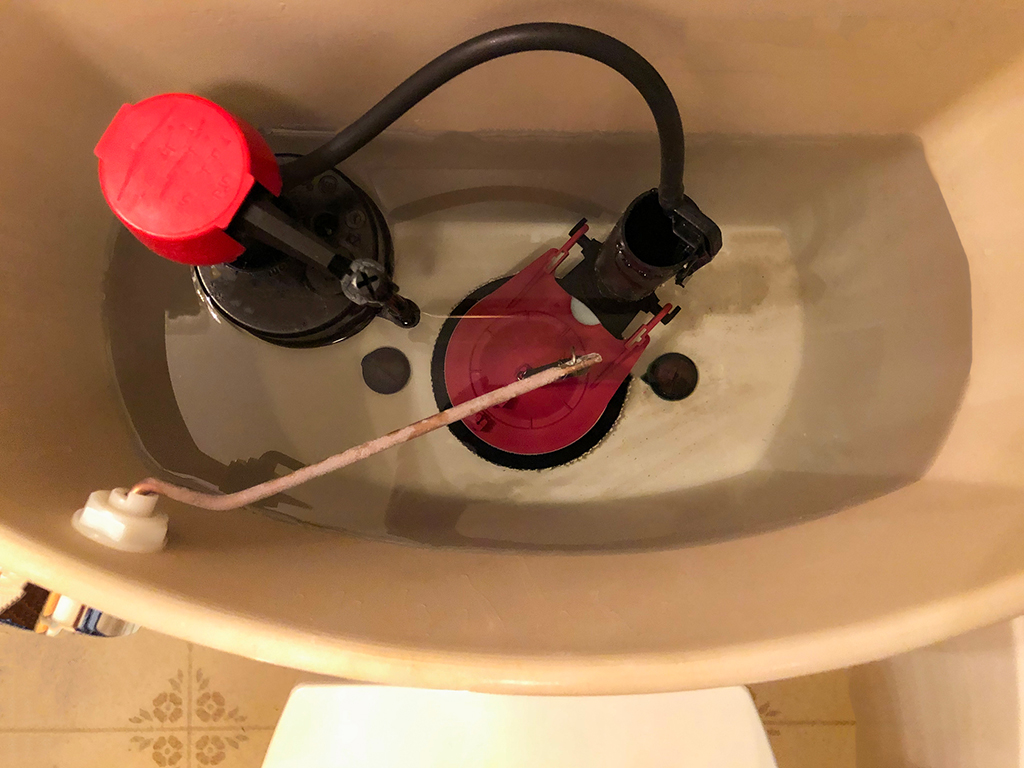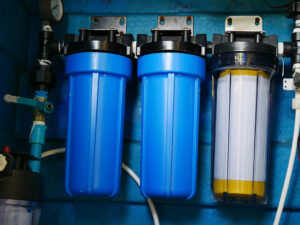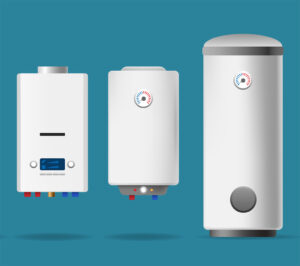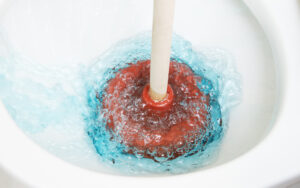
The Different Types Of Toilet Flanges A Plumber Can Install In Your Home
Toilet flanges might be small, but they are important in ensuring your toilet functions properly. Flanges connect your toilet to the drainpipe, which helps to prevent leaks and unpleasant odors. However, when choosing a toilet flange, you might be surprised to find out that there are different types available. When you choose the wrong type, wastewater can leak onto your floor and cause damage that will cost you a lot to repair. In this blog post, we’ll help you explore why flanges are important and the different types of toilet flanges a plumber can install in your home.
Why Toilet Flanges Are Crucial Toilet Components
A toilet flange is important for various reasons, including;
Provides a Secure Connection
A toilet flange offers a secure connection between the toilet and the waste pipe. The flange is usually attached to the floor with screws, providing a sturdy mounting surface for your toilet. Also, the flange has a collar that fits in the waste pipe, creating a tight seal that prevents leaks. The seal also prevents unpleasant gases and odors from escaping to your bathroom through the toilet.
Supports the Weight of the Toilet
A toilet flange helps distribute the weight of your toilet evenly across the floor, preventing the toilet from shifting during use. When the toilet is well secured in one position, the surrounding floor won’t experience any damage. Ensure the flange is installed properly to support your toilet fully. If it is not installed correctly, your toilet will experience many issues.
Enhances Simple Toilet Installation
A toilet flange can simplify the process of toilet installation by providing a reliable mounting surface for your toilet. The installation process can be time-consuming without a flange, as there would be no alignment guide or mounting surface. The toilet could also be prone to wobbling or shifting, leading to plumbing issues in your bathroom.
What Are the Different Types of Toilet Flanges?
PVC Toilet Flanges
Plastic or polyvinyl chloride (PVC) is commonly used in plumbing applications. Toilet flanges made of PVC are resistant to corrosion and rust, making them withstand different elements in your bathroom. Furthermore, they come in different sizes to fit different toilet models and waste pipe configurations.
PVC toilet flanges are also easy to install as they have a simple design. However, when installed incorrectly, they leak and cause serious plumbing issues. To avoid these problems, it is best to have your PVC toilet flange installed by an expert. They have the skills and knowledge to install toilet flanges. Furthermore, an expert will ensure that the installed flange is compatible with your toilet.
ABS Toilet Flanges
ABS toilet flanges are another type of plastic flange that is commonly used. ABS is similar to PVC but is more flexible and has better resistance to impact. ABS flanges are also easy to install and can be used with any toilet. The advantage of ABS flanges is that they are more chemical-resistant, making them ideal for commercial and industrial use.
Cast Iron Toilet Flanges
This is another good material, and it is plumber-recommended because of its sturdiness and durability. It is extremely sturdy, offering years of use without disintegrating or cracking. Because it is robust and heavier than plastic flanges, it provides a stable connection between the toilet and the waste pipe.
Installing a cast iron toilet flange can be complicated. You will need an expert to secure the flange properly to the floor. Due to its vulnerability to rust, it should be maintained regularly to prevent corrosion. Before you invest in a cast iron toilet flange, call a plumbing expert to assess your bathroom. If the material is not a good fit, your expert will recommend a toilet flange that is resistant to rust.
Stainless Steel Toilet Flanges
Stainless steel flanges are designed to provide better sealing and durability than PVC flanges. Stainless steel flanges are often used in residential plumbing applications but can also be used in commercial settings. Stainless steel flanges are also simple to maintain and clean. A plumbing expert should inspect the flange regularly to check for debris or obstructions that could cause clogs.
However, remember that stainless steel flanges are more costly than other types. If you are only interested in a stainless steel toilet flange, call a plumber to help you get a functional flange within your budget.
Brass Toilet Flanges
Brass flanges are a long-lasting toilet plumbing alternative. Resistant to rust and corrosion, brass is commonly used in most homes for plumbing tasks. Also, it resists mineral buildup, which can help increase the lifespan of your plumbing. Brass flanges are available in regular, offset, and deep seal flanges. Also, they are aesthetically pleasing, complementing most modern bathrooms’ look. For installation, this type of flange requires the skills of an expert plumber, as it takes more time.
Rubber Toilet Flanges
Rubber toilet flanges are the most flexible of all the toilet flanges. Rubber is a soft material that can easily mold to the shape of your drainpipe. Rubber flanges are easy to install and can be used with any toilet. The advantage of rubber flanges is that they can absorb shock and vibrations, which makes them ideal for use in houses with old, unstable plumbing.
Call Us to Help You Choose the Right Flange for Your Toilet
Toilet flanges are available in different configurations, such as regular, deep seal, offset, and repair. Buying a toilet flange that suits your toilet’s style is always good. Also, the toilet should be compatible with your plumbing system. If you need help choosing and installing the right flange for your toilet, hire experts at bluefrog Plumbing + Drain of West Houston. With the help of our experienced experts, we will help you get the right toilet flange. Also, our professionals can help with the installation because they are qualified and have experience dealing with toilet flanges.
See our most recent blog on this topic here.
Find out our service area here.
Photo By Jim Still-Pepper at istock

Things A Plumbing Company Wants You To Keep In Mind Before Buying A Reverse Osmosis System For Your Home
Water is essential for life, and we need it to stay healthy. However, drinking contaminated water may lead to serious health problems. You may want to consider purchasing a reverse osmosis system for your home to ensure you and your family get clean and safe drinking water. While many households prefer bottled water, owning a reverse osmosis system has more advantages. By removing impurities, these systems can provide clean, great-tasting water and protect your appliances and plumbing from damage. But before you buy a reverse osmosis system, you need to understand some things. That is why a professional plumbing company is here to help. Some of the things they want you to keep in mind before buying a reverse osmosis system include:
Water Source
The effectiveness of a reverse osmosis system depends on the quality of your water. If your water is excessively hard or has a high level of dissolved salts, you may need to install a pre-treatment system to get the best results. Similarly, a sediment pre-filter may be necessary if your water has a high sediment level. A professional plumbing company can help you assess the quality of your water and determine the right reverse osmosis system for you.
Water Demand
You must also remember the amount of water your household uses daily. RO systems have a limited capacity and only produce a certain amount of clean water daily. If you have a large household with high water demand, you will need a system with a higher production capacity to meet your needs. Furthermore, buy a system with a larger storage capacity if you have a high demand for purified water. On the other hand, if you have a small household, get a smaller system sufficient for your needs. A smaller unit can help reduce the initial cost and maintenance needs. Call a plumbing company for advice to ensure you buy the right system to suit your home’s water demand.
Water Pressure
A reverse osmosis system uses pressure to force purified water through the membrane. If your home has a well water supply, ensure the tank’s water pressure is adequate for the RO system to work well. This is because well water contains many contaminants. Remember that the higher the level of dissolved solids in the water, the more pressure will be needed for the RO system to produce clean water.
Most reverse osmosis systems need a proper 40-80 psi water pressure. If your home’s water pressure is below 30 psi, hire a plumber to install a booster pump. A booster pump helps increase the pressure before it enters the RO system.
Ease of Installation
Installing a reverse osmosis system is not a simple task. While some might be easy to install, it is always good to call a professional. Still on installation, consider the space requirements of the system you want to purchase. Most RO systems are designed to be installed under the sink. The space requirements will vary from one model to another. Also, consider the job’s complexity because some systems have complicated installation instructions or need extra plumbing modifications.
Efficiency
While reverse osmosis is not the most water-efficient water filtration method, it is reliable and effective. After the system filters contaminants from the water, it sends them to the drain with a lot of water. However, the water does not go to waste since it is used to carry the filtered contaminants away.
Mostly, the efficiency of a water filtration system is determined by the system’s water ratio, which is the ratio of purified water produced to the amount of wastewater produced during filtration. A lower wastewater ratio indicates a more efficient RO system. Knowing which system has a lower wastewater ratio can be hard if you are new to RO systems.
Furthermore, you must consider the system’s energy usage because some systems need electricity, which can add to your energy bills. Lastly, remember to check the quality of the membrane. Quality membranes are durable and need fewer repairs, increasing efficiency and reducing maintenance costs. Therefore, choose a quality model with low energy consumption and a lower waste ratio for maximum efficiency when buying an RO system.
Warranty
When buying a reverse osmosis system, avoid any model that doesn’t have a warranty. The system you want should have a detailed warranty that protects you in case of any defects. A good warranty should cover your system for a reasonable period and any issues arising during the warranty period.
In addition, review the terms and conditions of the warranty and understand them because there are instances where the warranty cannot be honored. For example, most warranties don’t cover damage caused by improper installation. Some want the system to be installed by a certified plumber to honor the warranty if something goes wrong. After purchasing your new reverse osmosis system, following the manufacturer’s instructions is good to avoid voiding the warranty.
Maintenance
Like any other household appliance, a reverse osmosis system requires regular maintenance. The filters must be changed every six months to a year, and the tank needs to be cleaned every few years. Ideally, you should hire a professional plumbing company to maintain your system. Plumbing experts have the expertise and experience to identify and address any potential issues with your system.
Contact Us Today
Now that you know what to look for before purchasing a reverse osmosis system, you will avoid making mistakes and get the right model for your needs. After purchasing a reverse osmosis system, avoid DIY installation, as you might do it the wrong way. To ensure your RO system is installed correctly, hire bluefrog Plumbing + Drain of West Houston. Our experts are reputable and certified to install RO systems without making mistakes that can affect the system’s performance. Also, our professionals can advise you on the best way to maintain your system and serve you for years.
See our most recent blog on this topic here.
Photo By Supersmario at istock

Learning The Differences Between Water Heaters From Your Trusted Water Heater Repair Professional
The heating element in your water is key to getting heated water. Without one, you will never get hot water from your water heater. Additionally, a faulty heating element lowers the efficiency of your water heating unit. However, a lack of hot water isn’t the only sign that you need to call a water heater repair technician to replace the existing element or install a new one. You might also experience popping sounds, smelly water, or a reduced hot water recovery rate. However, the heating element you choose for a water heater depends on your water heating unit’s wattage, diameter, and voltage. However, this also depends on whether you need high-density or low-density elements. High-density heating elements are more affordable but of lower quality, meaning they need a replacement. This is because they aren’t made from rust-resistant materials. On the other hand, low-density heaters are made from corrosion-resistant materials. Thus, they are more reliable and expensive than high-density ones.
Are All Heating Elements the Same?
If you enter a hardware store and ask the attendant for a heating element for the water heater, they will point you towards isles filled with many heating elements. By now, you know there are low-density and high-density elements, but apart from corrosiveness and affordability, there are other differentiating factors between these elements. Understanding their differences will be critical in helping you choose one that meets your requirements.
High-density heating elements are more affordable than low-density ones because they aren’t made from rust-free materials. This means you’ll need to replace the high-density elements now and then compared to the low-density heating elements. The high-density heating element is usually available in flange or screw connections.
Low-density heating elements are certainly costlier compared to high-density heating elements. This is because of their durability against forms of corrosion such as rust. Although you’ll have to pay more cash upfront for the low-density heating elements, you won’t have any worries about replacing them soon due to corrosion.
Besides these two, there also are extra-low-density heating elements that a water heater repair technician can install in your unit. Extra-low-density elements are made from stainless steel and are highly rust-resistant. However, the main drawback of using an extra low-density heating element is that you’ll likely also have to buy an extra assembly kit to assemble the element properly.
How Often Should Homeowners Replace the Heating Element?
Life expectancy of the heating element greatly depends on how frequently it is used and the hardness of the water it’s immersed in or even the corrosive accumulations. A heating element has an average life expectancy of 6-10 years. However, this depends on your usage behavior. Hence, you should enlist the help of a water heater repair technician to determine if a replacement is needed. Compared to high-density heating elements, low-density elements last longer. This is because they have a low burnout and higher protection against corrosive buildups. If you live in a place with a hard water supply, the heater will wear out even faster.
How Do You Choose a Heating Element?
Before deciding whether you need a high-density or low-density heating element, you must know your water heater’s wattage and voltage. You’ll also have to know your water heater’s size to ensure you choose a heating element that fits. Wattage and voltage are usually listed on your water heater’s information panel. Select a heating element compatible with the unit’s wattage and voltage.
Upon finding a heating element compatible with your water heater’s wattage and voltage, you must check its diameter to ensure the water heater element fits. Now, you decide whether you want a high-density or a low-density heating element. Remember, low-density heating elements will cost you more compared to high-density ones. However, they are more durable.
How Do You Tell a Heating Element Is Faulty?
A faulty heating element doesn’t mean you’ll get cold water whenever you turn on the shower or hot water faucets. The popping sounds from your water heater may identify a malfunctioning heating element. Whenever the mineral sediments settle at the lower parts of the heater tank, it hardens and causes the water heating unit to overwork and eventually become inefficient. However, you should enlist a water heater repair technician to inspect the water heater for a definitive conclusion.
Sedimentation in the water heater tank might make it leak. Hence, if you hear your water heating unit making noises, the heating element is probably covered by sediments, making it overworked and eventually stop working. A water heater leak can also indicate that the heating element is damaged. A defective heating element can cause your water heater to start leaking.
When a heating element becomes overworked for several years, fractures may develop in the tank. Consider all of your uses when assessing whether your heating element has failed. You can tell whether the heating element is defective not only by the way the water feels but also by any obvious leaks you may notice or by the sound the water heating unit makes when operating.
Are Copper Elements Better?
All the answers to this question rely on how you define the term “better?” What aspect of heating can be termed better for you? Is quick heating better in your case? If it is, you might consider using copper elements. This is because copper heating elements heat water approximately 20 times faster than other materials.
And what about durability? You must buy a durable heating element that won’t need frequent replacements because of rust or corrosion. If corrosion resistance is your most critical factor when choosing an element, then a heating element made from copper is not your best option. Consider stainless steel elements that are also far resistant to corrosion and rusting.
Contact Us
Do you need help choosing a heating element to replace the damaged one in your water heater? Contact us at bluefrog Plumbing + Drain of West Houston for advice.
See our most recent blog on this topic here.
Photo By vectortatu at istock

Plumber Tip: Take Care Of Your Water Heater
What type of water heater is installed in your home? Read this article if you still have a conventional water heater installed. We’ll discuss some tips on how to avoid costly water heater repairs and why you might want to consider switching to tankless water heaters. If you have questions, please call a plumber right away. Our plumbing team is always ready to help.
Best Ways to Take Care of Your Water
Water heaters can cost you a fortune, depending on the brand name and the size of the tank. So it’s only right to ensure it stays in top shape. If you don’t take care of your water heater, you might suddenly wake up to a flooded basement or home. Remember, water damage can cost you an arm and a leg in repairs and restoration costs. If some of your electronic devices are also damaged, you will need to also replace them. Below are some tips to take care of your water heater and save money.
Insulate the tank – If you have an old water heater tank, we recommend insulating them to conserve energy. Do this when the temperature starts dropping. Remember, a tank-type water heater will need to be turned on constantly or the hot water will turn cold. It usually takes longer to heat water using a water heater tank. So insulating them helps you save money. Just get an insulating blanket at your local shop or you may call a plumber in the area if you need more help.
Drain the tank- You already know this because we have discussed them quite a lot in our previous articles. And yet, some homeowners still fail to drain the water heater tank. Over time, sediment will accumulate in the tank. When it stays there, the efficiency of your water heater will be affected. You might notice that it’s no longer providing you with enough hot water or perhaps you notice fluctuating water temperatures. This is because the sediment has already accumulated and you no longer have enough space for your hot water. Thankfully, you can resolve this by simply draining the tank.
It’s recommended to drain the water heater tank just once a year. However, some may need to do this twice. If you have hard water in your plumbing or the water pressure is really low, the sediment will build up faster. If you don’t drain the tank twice, your water heater will only work harder and this can reduce its lifespan. If you need assistance with draining your water heater, you can always talk to a plumber. Our team can assist.
Professional Maintenance – Draining the water heater can help significantly but it’s not enough. You also need professional water heater maintenance to ensure your unit stays efficient. During the appointment, a licensed professional will inspect your water heater to determine if there might be problems that will lead to a major plumbing emergency. If there are any, a reliable professional will get this resolved on the same day. He will also make sure that the water inside the water heater stays clean. After the appointment, you’ll get an assurance that your water heater works perfectly.
Just please make sure you only hire licensed professionals for maintenance, so that if something does come up, he will be able to take care of it.
Water heater maintenance is crucial to ensure the tank doesn’t get damaged. Imagine when it starts to leak and you’re not home. You can avoid plumbing emergencies with effective water heater maintenance.
When to Get a Water Heater Replacement
Tank-type water heaters can last 10 or 15 years, depending on the brand and the maintenance performed on the unit. You can expect your water heater to last longer when you strictly adhere to your maintenance schedule and by hiring a licensed professional only.
If your unit is no longer efficient though — a classic sign is when you keep calling a plumbing expert for repairs or when you keep having problems with your unit — it may be time to get it replaced. When in doubt, you can always call a professional to help you make an informed decision. Our plumbing team will inspect your water heater and recommend the right solution. We’ll let you know if it will be more cost-effective to keep the old unit or if it’s going to be more beneficial to get a new replacement.
When you keep calling for water heater repairs more than once a year, you will be able to save more money by getting a new one. Consider getting a tankless water heater as a replacement because it’s more energy-efficient. You can save money because there’s no standby heat loss with the tankless water heater. However, get it professionally installed to avoid problems with the unit.
The only disadvantage to buying tankless water is the cost. It does cost more than the tank-type water heaters but when you think about the benefits of installing a tankless water heater, we do think it’s a better option. You don’t need to allow a bigger space for it because you can install it inside the cabinet or on the wall in your bathroom. You also need to worry about a leaky tank with the tankless water heater. Most importantly, you get to save money because the unit only consumes energy when you turn it on.
Contact bluefrog Plumbing + Drain of West Houston Today
Do you need to make a decision? Our plumbing team can help. Call us today and we’ll help you decide which unit will suit your household. If you go with the tank type, we’ll help you determine which size to purchase and the correct flow rate when you go with the tankless unit. If you need other plumbing services, we can also help with installations, routine plumbing inspections and leak detection.
If you need a plumber who can permanently fix issues, call bluefrog Plumbing + Drain of West Houston today for an appointment.
See our previous post on this topic here.
Photo By PJStock at Shutterstock

Why You Might Need A Plumber For Frequent Toilet Clogs
Many people keep a plunger on hand to resolve toilet clogs, but when the clogs become frequent and plunging doesn’t resolve a clog easily, you may need to have your toilet inspected by a plumbing professional. Frequent clogs can be a sign that there’s a problem with the toilet. Fortunately, customers throughout the region can rely on bluefrog Plumbing + Drain of West Houston for our full range of plumbing services, which include toilet repair and other solutions like drain cleaning and leak detection. We have a reputation for our fair pricing and plumbing expertise. If you have a toilet that’s developing clogs often, we can find out why and make the ideal fix.
Too Much Toilet Paper
Before you call a plumber to check out your toilet, consider the amount of toilet paper being flushed all at once. Too much toilet paper flushed at one time can cause a toilet to clog and backup. It’s not uncommon for households with kids to see this problem occur often. In these cases, simply reducing the amount of toilet paper flushed in a single flush should resolve the issue.
Also, consider the type of toilet paper you’re using. Some toilet tissue products are thicker than others; if you use a thicker-ply paper, you’ll need to flush even less at one time. If you have an older toilet, thicker-ply toilet tissue might be problematic for it. If you’re not ready to upgrade your toilet to a newer model that has a more powerful flush, you might want to use a thinner-ply toilet tissue to avoid those frequent clogs.
Wipes / Toiletries
Before you schedule a plumbing service call, also consider what you’re flushing down your toilet. ‘Flushable’ wipes aren’t actually flushable; that is, they could be causing your toilet’s frequent clogs. These products may not dissolve quickly enough, causing toilets to backup and even overflow. Ask most plumbing professionals and they’ll tell you that the only things that should be flushed down the toilet are human waste and toilet tissue. Anything else is asking for trouble.
Additionally, be sure that no one in your household is flushing cotton balls, cotton swabs, or other toiletries. These can build up in the plumbing system and leave your toilet more vulnerable to frequent clogs. Be sure that no one is flushing items such as diapers, wipes, condoms, feminine products, or paper towels.
Low-Flow Toilet
Low-flow toilets are prone to clogging. If you have one of these toilets, which became popular during the 1990s, you may want to upgrade to a different model, especially if you have a busy household with people in and out of the bathroom. Newer toilets are designed with increased pressure to reduce the risk of clogs. There are lots of toilets on the market today, but to ensure you choose the ideal model for your household, consult with a plumber from our team. We can point you to toilets that don’t have a reputation for clogging.
Plumbing Vent Clog
Another cause of frequent toilet clogs is actually due to a clogged roof vent–and not a problem with the toilet itself. If your property is surrounded with trees, it’s not uncommon for these vents to become clogged with debris like leaves and twigs. The vents provide needed pressure for your plumbing system. When there’s reduced pressure owing to a vent clog, the result is that more of your household fixtures like toilets and sinks will become vulnerable to clogs.
If you suspect this problem or aren’t sure of the problem, you can rely on our plumbing technicians to inspect your system and identify the issue. If it is your home’s plumbing vents, clearing them should eliminate the clog problem for you.
Flapper Problems
It’s not uncommon for toilet apparatus like the flapper to wear out. If the flapper wears out or begins to malfunction, it will reduce the water pressure needed for a strong flush. Replacing the flapper is an inexpensive fix. However, if you’re not sure that it’s the flapper or a different component of your toilet that’s cause for concern, it’s best to let a trained plumber inspect the toilet and make the necessary fix.
Sewer Line Clog
If your toilet is located near the sewer line and is suddenly experiencing more frequent clogs, the issue might not be the toilet; there could be a clog developing in the sewer line. If a clog forms in the sewer line, it may continue to allow wastewater to flow to the main sewer, but more slowly. That means that a powerful flush and large volume of water may no longer flow as before. The result can be more frequent backups and even overflows.
A clogged sewer line spells trouble for your entire plumbing system. If it becomes completely blocked, you’ll notice that multiple fixtures may back up, including floor drains. This can lead to a mess and will stop-up your plumbing system. If multiple drains/toilets begin to back up, be sure to call a plumber right away to troubleshoot the issue. There’s a strong likelihood that the problem is the sewer line or in the pipes nearest the sewer line.
Hard Water Buildup
Hard water can cause buildup within your drain system, including the pipes associated with your toilet. The buildup reduces the diameter of the pipes, so they actually become more narrow. As this occurs, you’re apt to notice more frequent clogs. There are ways to reduce the buildup. Talk to us about descaling your plumbing system. We can inspect your system to determine if hard water is responsible for the clogging or if it’s something else.
Contact us to resolve your frequent toilet clogs. At bluefrog Plumbing + Drain of West Houston, we can identify the problem and perform the necessary repairs.
If you want to replace an old toilet, we can remove the old one and install a new one for you. No matter what type of plumbing solution you need, you can count on our skilled plumbing professionals for the highest-quality service.
See our previous blog on this topic here.
Photo By SchulteProductions at istock
Check out this tip!





;)

